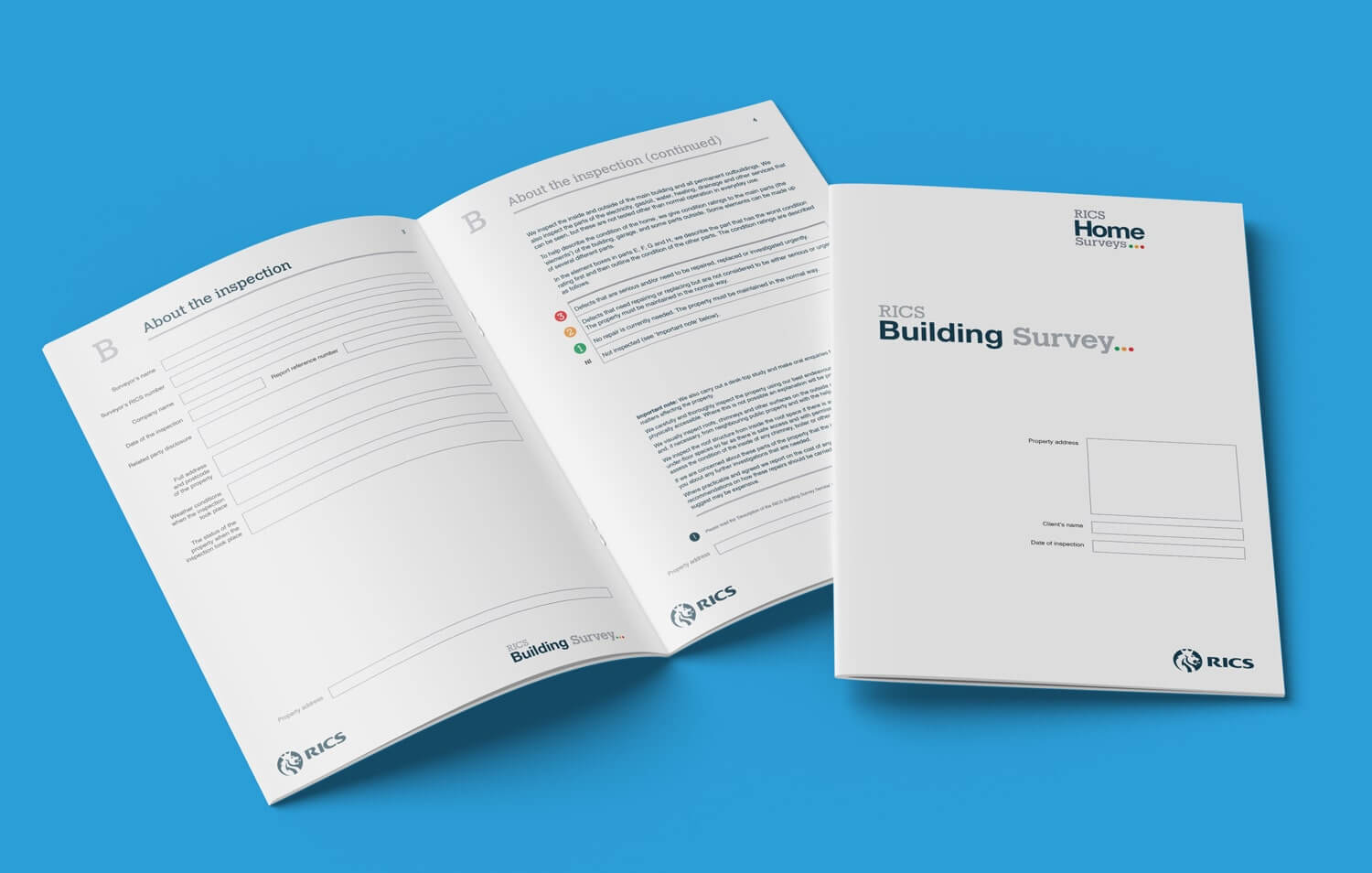Everything you need to know about selling your house
Selling your home can be daunting. Indeed, moving house is consistently in the top 5 most stressful things you can do in life.
That’s why we want to help and guide you through the process of selling your property.
Because when you know what to expect, things become far less worrying.
Selling Your Home: A Complete Guide tells you all you need to know about selling your property.
And once you’ve read it, you’ll be as prepared as you can be.
Ready?
Let’s eliminate your fear of the unknown.

1. Getting Started
Even if you have experience in selling property, the sales process can be intimidating.
No two house sales are alike.
There are property chains. Problematic enquiries. And a million and one legal aspects to consider.
Thus, it’s important to ensure that everything you need to do is done as quickly as possible.
We want to avoid delays.
Choosing an estate agent
Although you can, of course, sell your home yourself, most people opt for the help of an estate agent.
Their experience and expertise is invaluable when it comes to selling your home.
But how do you know which estate agent is best?
Fortunately we have a winning formula. We call it the 7 C’s.
It tells you exactly how to choose an estate agent.
Instructional paperwork
Within a week of your sale being agreed and your sales memorandum being sent out, your solicitor should provide you with their instruction paperwork.
As standard this will include:
- Instructions from you as their client;
- Law society property information form;
- Fixtures and fittings form.
These will come along with any other property questionnaire forms that your solicitor may require. Together they form part of the draft contract pack.
Their aim is to obtain as much information as possible about your property. Including information on any fixtures or fittings you plan to leave behind.
It’s essential that these forms are completed ASAP. Because they are required before conveyancing can start.
Once completed, the draft contract pack will be sent from your solicitor to the buyer’s solicitor.
At that point that your buyer can start proceedings.
Leasehold property
The factors above apply to both freehold and leasehold properties.
However, leasehold properties also require further documentation and legal paperwork.
Your solicitor will likely require documents from the leasehold management company. These can often take several weeks.
The most common being the management pack. And if it’s not ordered early in the process, can cause significant delays when agreeing a completion date.
We recommended that you discuss with your solicitor any leasehold documents that are likely to be required.
Arrangements can then be made to obtain them ASAP.
When the paperwork is complete
As a vendor, you may feel that things go a little quiet at this stage.
The buyer will be starting searches. And their solicitor will begin to review documents and raise enquiries.
Your solicitor will deal with the majority of these directly with the buyer’s solicitor. However, they may need your assistance if there’s any information they’re unsure of.
The flowchart below shows a step-by-step guide to each part of the process of selling your home…
Going with the flow: The process of selling your home
2. Mortgages
Whether you’re a buyer, a vendor, or both, the mortgage process is likely to be a significant part of buying or selling your home.
So you need to understand the various stages.
There’s an agreement in principle, also known as a mortgage in principle. Then there’s a formal mortgage offer.
But what’s the difference?
The agreement in principle
The Agreement in Principle (AIP) is a document provided by the lender.
It’s also referred to as a Mortgage in Principle (MIP) or Decision in Principle (DIP).
It states that the applicant can obtain a mortgage for a specific agreed amount – based on their earnings and a soft credit check.
This document is easily accessible. It can be requested through a mortgage advisor, directly with the bank and online.
An Agreement in Principle does not mean the mortgage is guaranteed. Although, it’s around 90% certain.
When the buyer makes an offer, the Agreement in Principle is taken as proof of funding. Together, of course, with proof that they hold the relevant deposit to match the agreement.
The formal mortgage offer
Once you or your buyer have your offer accepted, you can proceed with the mortgage application.
Each lender has different criteria that you need to meet. But they will usually request your three most recent bank statements.
Some lenders may need other documents, such as proof of permanent work. Or more bank statements if you’re self-employed.
At this point, the mortgage application goes to the lender’s underwriter.
They review the application along with the ingoings and outgoings on each statement. These help decide whether they believe the mortgage is ascertainable.
The lender will also request a mortgage valuation on the property before they agree to borrow the requested amount of money.
Hence, they will send a valuer to visit the property to confirm that the purchase price is satisfactory .
When the mortgage valuation is confirmed and the underwriting complete, the process can continue.
The applicant will then receive a formal mortgage offer, which is usually valid for six months.
Sometimes, you can request an extension if the sale continues past the expiry.
But not all lenders offer this.
Choosing the right lender
Mortgage advisors charge a fee, but it may be worthwhile as they have your best interests at heart.
A mortgage advisor will scour the market to ensure you receive the best possible mortgage rates and prices.
They will know your requirements and any financial commitments you have that may hinder your chances.
Moreover, they have extensive knowledge of each lender and their ever-changing criteria.
Thus, they know which lenders you can and can’t proceed with.

3. Surveys
Buying a home is one of the biggest investments you make in life. Yet estimates suggest that up to 80% of people don’t get an impartial survey before they buy.
That’s a huge number of people who are taking a huge leap of faith.
Let’s look at the facts.
There are three main types of survey carried out by the Royal Institution of Chartered Surveyors (RICS). These are:
- Condition Report (Level One)
- Homebuyers Report (Level Two)
- Building Survey (Level Three)
An RICS survey can also be an aid to selling your home. That’s because it will highlight any problems that may delay your sale or cause price reductions later in the process.
What is a Condition Report?
A Condition Report is the most basic type of survey, based on a surface-level inspection.
Hence, it doesn’t include much detail.
It uses a traffic light rating for the general condition of different parts of the property. And it will only highlight the more obvious issues.
Condition Reports are typically used for a conventional property in reasonable condition.
The main drawbacks of a Condition Report are that no advice, costs, or job valuations are provided.
What is a Homebuyer Report?
The Homebuyer Report is most commonly used survey. It’s designed to give an overall opinion on the condition of the property.
A Homebuyer Report goes into more detail. It should highlight any problems that could cause damage or need future repairs, such as damp or subsidence.
Things you won’t necessarily notice when viewing the property yourself.
Importantly, it also includes a market valuation and a reinstatement cost. A reinstatement cost is an estimate of what it would cost to rebuild the property.
What is a Building Survey?
A Building Survey is an in-depth inspection of a property.
It is the most comprehensive of the surveys available for residential properties. And, consequently, the most expensive.
There are differences between a Building Survey and a Homebuyer Report.
The latter will provide a more thorough inspection of the roof space, grounds, floors and services.
The Building Survey establishes how the property is built, what materials are used and how these will perform in the future.
Moreover, it details the repair options and explains the consequences of not acting on the advice given.
On the downside, the Building Survey does not include a market valuation or a reinstatement cost for insurance purposes.

4. Searches
Searches are enquiries on your behalf by a buyer’s solicitor or conveyancer.
They are made to various authorities that hold information about the property they are buying, the land it sits on or factors that may effect it.
Are they compulsory? No.
Are they advisable. Most definitely.
If you or your buyer is purchasing using a mortgage, your lender will tell your conveyancer what searches need to be ordered and checked before they will release your mortgage funds.
There are three main searches which are required as a minimum. They are:
- Local Authority
- Environmental, and
- Water and Drainage.
More may be required depending upon the area where the property is located.
If you or your buyer is purchasing solely cash, there is no lender calling the shots. Therefore, you are free to order as many or as few searches as you like.
That being said, a good conveyancer will always recommend that you have searches. Because they will help detect any potential problems BEFORE you legally commit to buy.
Let’s look at what’s covered in each search…
Local Authority Search
This covers issues relating to building control, highways and pollution.
Environmental Search
This highlights issues relating to flooding, landslide, subsidence and contaminated land.
Water & Drainage Search
This search is made to the local water company. It highlights who owns and maintains the sewers, drains and piping.
It also indicates if the water supply is metered or rateable. Plus whether you will need permission from the water company to extend the home.
Other searches
There are a variety of other searches that may be conducted depending on the area you are buying or selling your home.
For example, in Stoke-on-Trent and Newcastle-under-Lyme there is a history of coal mining. Thus a mining search from the Coal Authority is extremely common.
Local Authority searches, in particular, can take a long time to come back. Sometimes up to 10 weeks!
Therefore, the sooner you get these submitted, the better.
Remember: if you’re buying with a mortgage, your solicitor has a duty of care to your lender to order the appropriate searches.
They need to check them and refer any potential issues to them for approval before exchange of contracts.
Thus, the earlier you apply for your searches, the sooner your solicitor can raise any enquiries.

5. Common delays
No one likes hold-ups.
Delays are arguably the most frustrating part of buying or selling your home.
The conveyancing process isn’t quick and can be held up by a number of things.
However, they are often out of the control of your conveyancer or estate agent.
At this point, it’s ideal if your buyer’s mortgage application is well underway. And your own, if you have a related purchase.
Remember, every sale is unique. You can never predict an exact timescale from the outset.
Nonetheless, if you manage to avoid some of the common causes of delay, you’re in for a much smoother ride.
Let’s take a look at the profusion of possible delays when buying or selling your home.
Brace yourself.
1. Waiting for a mortgage offer before submitting searches
This could apply with any onward purchase – or could apply to your buyer.
It’s extremely common for buyers to wait for a mortgage offer before paying for their searches. Mainly because this minimises financial risk.
However, it’s worth weighing up risk versus reward here.
If you’re trying avoid delays, submitting your searches sooner rather than later may work in your favour.
2. Obtaining a management pack for leasehold properties
If you are selling a leasehold property, inform your solicitor of this at the outset. That way, they can request the management pack early.
Management companies can be notoriously slow at returning required documents and replying to leasehold enquiries.
3. Lack of planning permission
When acting for a lender, conveyancers have a duty to ensure that all necessary planning permission and building regulation approvals have been obtained in respect of making changes to a property.
When no lender is involved, there is a duty to the buyer. They must ensure that any previous changes to a property were carried out correctly. And that they meet applicable standards and regulations.
If you’ve had building work carried out at your property, make sure these documents are in place.
Otherwise you may have to pay for an indemnity insurance policy to reassure your buyer.
4. Receiving responses and legal documents from other conveyancers in the chain
Each potential delay listed here can occur further up or down the conveyancing chain.
Delays caused by any party in a chain will significantly affect the process.
You can only move as fast as the slowest person in the chain.
5. Other parties in the chain having different timescales
Again, a lot of potential delays in the conveyancing process will come down to other parties in the chain.
For example, some Local Authorities will complete necessary searches within a few days. Others could take weeks.
6. Not signing or returning required legal documents on time
When selling your home, there are documents that need to be signed by both buyer and seller, regardless of whether a lender is involved. Some of which need to be witnessed.
Arranging this can sometimes cause delays.
To ensure that you don’t delay the conveyancing process, make yourself available to sign contracts.
And always return documents as quickly as possible.
7. Gifted deposits
If your house deposit is a gift, you must declare this to your mortgage provider.
Most will need a signature from the source to confirm that the gift does not need to be repaid.
The mortgage provider may perform other checks to rule out money laundering. And this can cause delays.
If you have received a gifted deposit, inform your lender and solicitor at the beginning of the conveyancing process.
8. Time taken to complete mortgage valuation and surveys
Mortgage valuations aren’t in depth surveys and don’t take long to complete.
However, it can take time for your mortgage provider to arrange to have one carried out.
Also, any further surveys you may wish to have can also cause delays.
When valuations and surveys have been carried out, the surveyor has to report the findings. There can be delays in reporting back to the lender.
If you want a Homebuyer Report or structural survey, you should look into this as soon as you’ve had an offer accepted.
Your estate agent can help with this process to avoid delays.
9. Transferring funds to solicitors
Most banks limit the amount of money you can transfer in one day.
Therefore, if you have a sizeable deposit to send to your solicitor, you may need to do it over a few days.
There may be an option to make a higher lump sum payment via the Clearing House Automated Payment System (CHAPS)
However, there will likely be a charge for this.
10. Mortgage offer expiring
Mortgage offers usually last between 3 and 6 months.
But if they expire before all necessary legalities are complete, you may need to reapply.
If there is only a small delay, speak to your mortgage adviser about applying for an extension.
11. Holidays
Easter. Summertime. Christmas. All periods when it’s likely that one or more parties in a conveyancing chain will be on holiday.
Moreover, conveyancing solicitors may also be closed at certain times.
It’s not always possible but, if you can, consider when you move.
Holidays periods can significantly delay selling your home.
12. Loss of title deeds
Title deeds are the paper documents that show the chain of ownership for a property.
As Land Registry records are now digital, they don’t store original paper title deeds.
However, your property may not be on their digital register.
Consequently, you will need to apply for first registration with His Majesty’s Land Registry (HMLR).
This can take time and involves proving your identity.
13. Local Authority searches
Solicitors have to make Local Authority searches.
These are to obtain details of who owns – or is responsible for – the roads or sewers surrounding the property. And whether there are any road-widening proposals in place.
The length of time a local search depends on the Local Authority.
At Samuel Makepeace, for example, we operate in the vicinity of four Local Authorities. Local search times usually range between four and 10 weeks.
14. Obtaining FENSA certificates
When selling your home, your buyer’s solicitor will ask for evidence that any replacement glazing installed since April 2002 complies with Building Regulations.
To do this, they need to obtain a certificate to prove the work was done by a FENSA registered installer (or similar).
Finding this paperwork early will help you further down the line.
15. Obtaining gas/electric certificates
Most buyers will want to see gas/electricity safety certificates when buying a property.
It’s not a legal requirement of you to provide these certificates. However, should your buyer require them, delays can arise if this isn’t resolved quickly.
The conveyancing process takes time. And delays of any kind can be disheartening.
But remember the three P’s: complete your PAPERWORK, trust the PROCESS and be PATIENT.

6. Removals
Searches ordered. Mortgage offer received.
At this stage of buying or selling your home, you may have some free time.
Because those searches can take a while.
It might not seem like it, but there’s no better time to sort your removals to prepare for completion day.
A lot of removal companies get booked up quickly. So we always advise to start this process sooner rather than later.
Remember, we’re trying wherever possible to remove the stress or buying or selling your home.
You don’t want to get to the stage where the solicitors are asking for a preferred completion day and you haven’t given it a second thought.
This should be a time to get excited about your new home. So make it just that by planning ahead.
There are two options when it comes to planning and organising your move.
But which is the best option for you?
Let’s take a look.
Self move
A self move is usually the cheaper option. Especially if you own a van or know somebody that does. With any luck, the labour from your family and friends could come free if you talk to them nicely.
Hiring a van can be costly if you need it for more than a day. So do your research and shop around for quotes.
Moreover, hiring a van doesn’t cover insurance for your belongings. So you would need to think about any instances involving accidental damage.
You should also consider how much you have to move and how many journeys you need to make.
Fuel prices are on the up. So that will be a factor if you make plenty of trips back and forth.
A self move is probably the more stressful option. There’s a lot of hard work and organising.
And the thought of losing a treasured heirloom will play on your mind.
You can turn this into a positive, however. Working with your friends or family to get things done can be quite rewarding.
If you’re moving for the first time, get plenty of help and plan well in advance.
Conversely, if moving home is old hat, you will, no doubt, be more confident.
You will still need to plan, of course. But you will have more faith in your ability to move your belongings.
Removal companies
Hiring a professional removal company can bring you peace of mind. And it’s probably the more convenient and hassle-free option.
There’s no need to think about hiring a van or stress about damaging your possessions. They will do everything for you.
As with any service, there is a price tag. But it might not cost as much as you think.
A removal company will organise the packing. So the valuables or fragile items that you really don’t want to move yourself are taken care of.
They’ve done this umpteen times and know exactly what they’re doing.
Needless to say, the removal team also help with the unloading of items at your new home.
Thus, hiring a removal company is a good option if you don’t have much support. It’s a physically demanding job with lots of heavy lifting.
Letting the professionals take care of things is more expensive—but it won’t tire you out.
The verdict
There are pros and sons for either option.
Ultimately, if you have lots of help and access to a van, a self move might be your best option. Especially if you’re on a budget.
If you need to hire a van, get plenty of quotes. Then compare these to quotes from removal companies.
This will allow you to make an informed decision as to which is the best option for you.
Samuel Makepeace can, of course, help point you in the right direction. We can gather quotes for you in preparation for your completion day.

7. Enquiries
Waiting for the searches to come back can seem like forever. But rest assured, there is a lot going on in the background.
This is the time for the buyer’s solicitor to raise enquiries with your solicitor.
The enquiry stage is very important for the buyer and the lender.
It ensures they have investigated the property they are planning on buying. And that all is well before committing to exchange.
What do the enquiries involve?
Enquiries can cover a variety of aspects of the sale, starting with the draft contracts and title plan.
There could be further questions once the searches start to come back.
There isn’t a set number of enquiries the solicitor must raise. But they do tend to raise more enquiries with a leasehold property, as they will have to review the management pack.
When a buyer is mortgaging a property, the lender will also expect the buyer’s conveyancer to act in their best interests, too.
This means that the transaction will have to adhere to the guidelines contained within the Council of Mortgage Lenders (CML).
Keep in touch with your solicitor to see if there are any enquiries you can help with.
Remember: transparency and accuracy. If the information you provide from the outset is precise, the fewer enquiries will be raised.
And, thus, the faster you get to be in a position to exchange.
What else happens around this time?
During this period, you could also be signing contracts.
This can save a lot of time when looking to agree on a completion date.
If your solicitor has your signed contract ready, it’s one less thing outstanding.

8. Approaching completion
By now you are approximately 8 weeks into selling your home. Time to start thinking about your move date.
Your solicitor won’t formally agree a date for completion until everything is ready. But there are steps you can take in these final stages.
No one wants to move at a moment’s notice. So prepare yourself as much as possible.
What can you do to prepare?
- Look at your calendar. What dates work for you? Is it easier for you to get time off work on a particular day of the week? Do you have a holiday coming up that might impact when you want to move?
- Consider the length of the chain you’re in. If there are parties in the chain that started the conveyancing process after you, they aren’t eight weeks in. So you may need to wait a while for them to catch up.
- Speak to your sales negotiator about floating a date up and down the chain. Even though this date can’t be confirmed yet, there is no harm in asking your agent to make the rest of the chain aware of the date you’re aiming for.
- Speak to your conveyancer and make sure you have signed EVERYTHING you need to sign.
- Keep your completion date expectations realistic. Remember: when a date is agreed, your solicitor has to contact your lender on your existing mortgage and request a redemption statement. They will also need a set number of days notice (usually five working days) to request your new mortgage funds from your lender.
IMPORTANT TO REMEMBER: All of the above doesn’t just apply to you. It applies to your buyer and everybody else in the chain.

9. Completion Day
The day of completion. That much-anticipated final act of buying or selling your home looms large.
You need to be as organised as possible to make the day go as smoothly as possible.
Here’s what we advise…
Check your solicitor has everything they need
Signed documents. Proof of funds. Help to buy closing statements. And check they’ve requested your funds from your lender. There’s nothing worse than your solicitor telling you they need a copy of something the day before. And you rushing to get it to them.
Cancel or switch contracts with your providers
Make sure you’ve cancelled contracts with your current providers or switched them to your new property. You need to tell the local council you’re moving. Plus set up your energy suppliers and internet.
Book your removals
Removal/van hire companies have limited availability. Because they’re mega busy! Book your removal arrangements as soon as you have a completion date agreed. If you’re struggling, ask your estate agent if they can help.
Pack well in advance
Pack your belongings into boxes WELL BEFORE MOVE DAY. It may be inconvenient living out of boxes for a few days. But you only have an allocated slot with your removal company on the day. Save time – and a massive headache – on the day by being prepared.
Book time off work if you need to
Once your date is agreed, you can book time off work if you need to. That way, you’ll have plenty of time on move day to unpack and begin to set up your new home.
Book contractors if you’re renovating
Do you need work doing at your new property? If you’re renovating, book contractors well in advance. Plumbers, electricians and builders and always exceptionally busy (if they’re any good). So, to avoid the wait, book them as soon as you have a completion date.
Check key arrangements with your estate agent
Finally, check key arrangements with your estate agent for move day. You may need to meet at the property or drop off/collect keys from the office.

Conclusion
It’s well documented that selling your home or buying a house is one of the most stressful times in your life.
But it can also be one of the most wonderful times of your life.
As long as you’re patient, well prepared, and know what to expect, you can eliminate the stress.
What awaits is a fresh start. A new beginning. The home you always wanted.
Hold that thought.
And remember: if you need help buying or selling your home, we’re right here.






